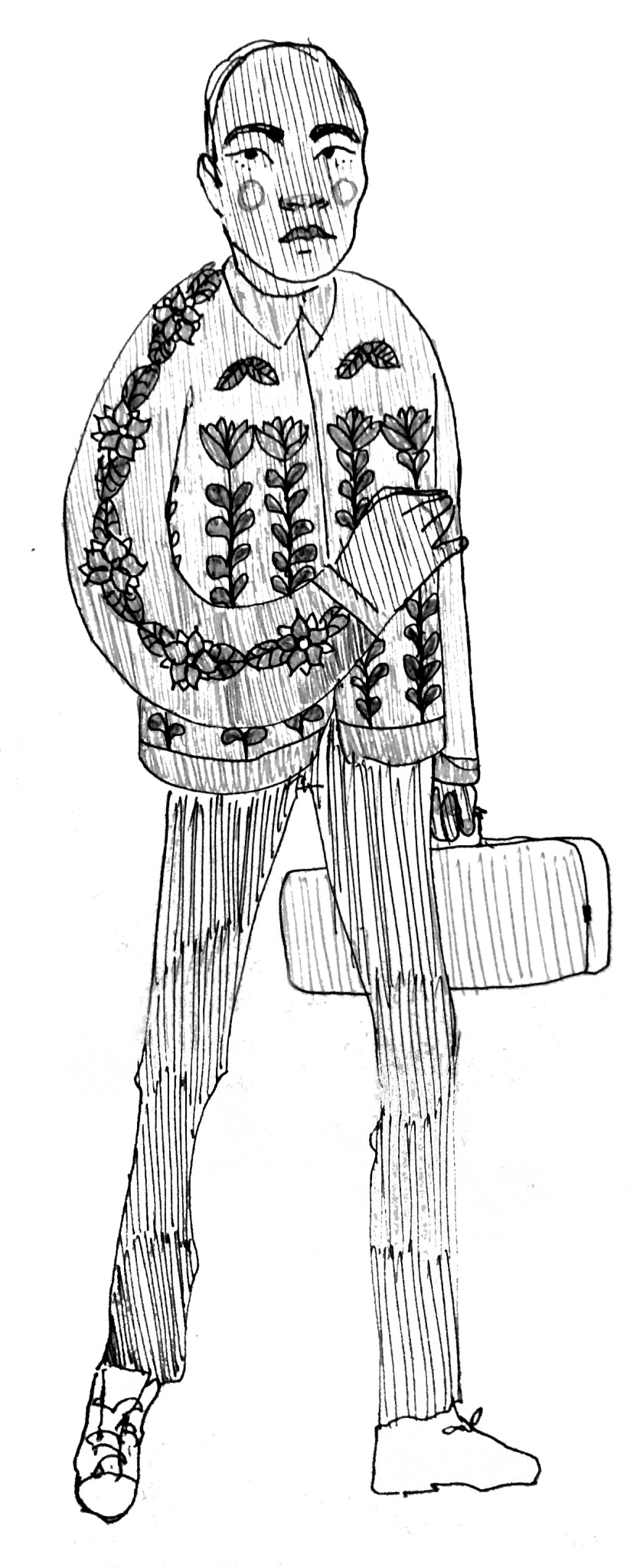Jazz was born with piano hands under an Iberville street lamp
parented by the quick brass of horns. Jazz was a southern child and jazz
was black. Storyville was a house of worship, twirling high on New Orleans
ivory until that good red turned navy in the daylight. When those doors
shut, Jazz cracked his keys and boogie-woogied like an upriver shuffle
down Perdido Street to the slick-kick shotgun of Chicago. He turned
the right kind of blue on Canal, then slipped slow to the Apex
on Calumet. The keys built back this house music, dancing
like fingers across a South Side clarinet. He sounded black
as Bronzeville, as the Pekin Temple, as something I thought I heard
Buddy Bolden say, as the Duke at Quinn Chapel, black as a belt
in a red summer. Jazz was never a rag-tag second hand
or a sharecropper’s blues; He was riot burning black as a coalminer
callous, as a river mouth that glides like Metropolis ink. Jazz didn’t
float to Chicago on sheet music. Mississippi river boats
couldn’t hold those notes. It was the 12th street station
that railroaded his song too close to home for those Irish boys.
We know you knew Tom Brown Jazz, but we never wanted
you to settle in slow to the stroll. We wanted you to take the Midway,
let the fight in you rise like a smokestack sky, not head west to pinstripe
a Cicero saloon. You were a defender, Jazz. You should’ve known
when you saw Bud Freeman ear-hustling in back of a juke joint
or saw a gin glass in Beiderbecke’s fist that you might look ghost now:
turned white as a sheet, as a whippersnapper on Halsted Street,
as a swing-step, as Eliot Ness in his Sunday’s best. We’ve seen you
in that town car, trotting back and forth from Dixieland, whistling
at uptown girls, playing by the rules you tried to rewrite you
tried to break you improvised. But we know. We always have known
that you’re a policy king, a high hat on a Raceman in Dreamland.
We know the speakeasy still speaks Creole. We know
how many tongues you have, how you can make us dance all night.
We know you came to Chicago to work it, Jazz, we remember
where you came from and exactly who you’ve always been.


